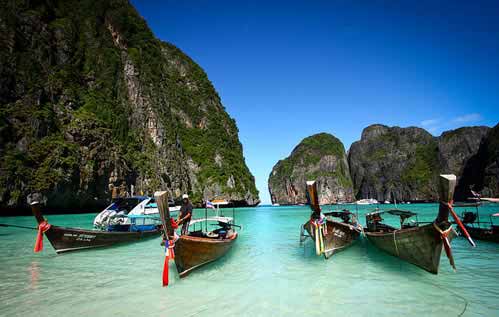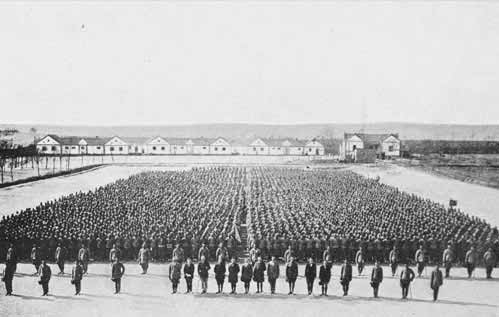

In 1299, as per the Malay Annals, the Kingdom of Singapura was set up on the island as an exchanging port city. There were two noteworthy outside attacks before it was pulverized by the Majapahit in 1398. In 1613, Portuguese pillagers torched the settlement, which by then was ostensibly part of the Johor Sultanate. The more extensive oceanic district and much exchange was under Dutch control for the accompanying time frame.

Thomas Stamford Raffles touched base in 1819 and marked a settlement with Sultan Hussein Shah of Johor, for the benefit of the British East India Company, to build up the southern piece of Singapore as a British exchanging post. In 1824 the whole island, and in addition the Temenggong, turned into a British ownership after a further bargain with the Sultan. In 1826, Singapore turned out to be a piece of the Straits Settlements, under the ward of British India, turning into the local capital in 1836. Preceding Raffles' entry, there were just around a thousand people living on the island, for the most part indigenous Malays alongside a modest bunch of Chinese. By 1860 the populace had swelled to more than 80,000, the greater part being Chinese. Numerous settlers came to work at elastic estates, and after the 1870s the island turned into a worldwide place for elastic fares.

After the First World War, the British assembled the expansive Singapore Naval Base as a feature of the cautious Singapore system. Amid the Second World War, the Imperial Japanese Army attacked British Malaya, finishing in the Battle of Singapore. At the point when the British compel of 60,000 troops surrendered on 15 February 1942, British Prime Minister Winston Churchill called the thrashing "the most exceedingly terrible debacle and biggest capitulation in British history. In the vicinity of 5,000 and 25,000 ethnic Chinese individuals were executed in the resulting Sook Ching slaughter. From November 1944 to May 1945, the Allies led a serious bombing of Singapore. The Japanese involved Singapore until the British repossessed it in September 1945, after the Surrender of Japan.
Amid the 1950s, Chinese communists with solid binds to the exchange unions and Chinese schools pursued a guerrilla war against the administration, prompting to the Malayan Emergency. The 1954 National Service Riots, Chinese center schools mobs, and Hock Lee transport revolts in Singapore were altogether connected to these occasions. David Marshall, genius freedom pioneer of the Labor Front, won Singapore's first broad race in 1955. He drove an assignment to London, however Britain dismisses his interest for finish self-run the show. He surrendered and was supplanted by Lim Yew Hock, whose arrangements persuaded Britain to give Singapore full inner self-government for all matters with the exception of safeguard and remote undertakings.
Amid the May 1959 races, the People's Action Party won an avalanche triumph. Singapore turned into an inside self-representing state inside the Commonwealth, with Lee Kuan Yew as its first Prime Minister. Representative Sir William Allmond Codrington Goode served as the principal Yang di-Pertuan Negara (Head of State), and was prevailing by Yusof receptacle Ishak, who turned into the primary President of Singapore in 1965.
Accordingly of the 1962 Merger Referendum, on 16 September 1963 Singapore joined with the Federation of Malaya, the Crown Colony of Sarawak and the Crown Colony of North Borneo to frame the new alliance of Malaysia under the terms of the Malaysia Agreement. Singaporean pioneers joined Malaysia principally because of worries over its restricted land measure, shortage of water, markets and common assets. Some Singaporean and Malaysian lawmakers were additionally worried that the communists may shape the legislature on the island, a probability saw as an outside danger to the Federation of Malaya. Notwithstanding, not long after the merger, the Singapore state government and the Malaysian focal government differ on numerous political and financial issues, and mutual strife finished in the 1964 race revolts in Singapore. After many warmed ideological clashes between the two governments, on 9 August 1965, the Malaysian Parliament voted 126 to 0 (with Singaporean representatives not present) to oust Singapore from Malaysia.
Singapore picked up freedom as the Republic of Singapore (staying inside the Commonwealth of Nations) on 9 August 1965. Race riots softened out again up 1969. In 1967, the nation helped to establish ASEAN, the Association of Southeast Asian Nations. Lee Kuan Yew got to be distinctly Prime Minister, and the nation moved from Third World economy to First World opulence in a solitary era. Lee Kuan Yew's accentuation on fast financial development, bolster for business enterprise, and constraints on inside vote based system formed Singapore's strategies for the following half-century. In 1990, Goh Chok Tong succeeded Lee as Prime Minister, while the last kept serving in the Cabinet as Senior Minister until 2004, and after that Minister Mentor until May 2011. Amid Goh's residency, the nation confronted the 1997 Asian money related emergency, the 2003 SARS flare-up and psychological militant dangers postured by Jemaah Islamiyah.
In 2004, Lee Hsien Loong, the eldest child of Lee Kuan Yew, turned into the nation's third Prime Minister. Goh Chok Tong stayed in Cabinet as the Senior Minister until May 2011, when he was named Emeritus Senior Minister in spite of his retirement. Lee Hsien Loong's residency incorporated the 2008 worldwide monetary emergency, the determination of an argument about Malayan railroads arrive, and the presentation of coordinated resorts. Notwithstanding the economy's remarkable development, the People's Action Party (PAP) endured its most noticeably bad decision brings about 2011, winning 60% of votes, in the midst of hot-catch issues of high inundation of remote specialists and average cost for basic items. On 23 March 2015 Lee Kuan Yew kicked the bucket, amid the 50th year of autonomy. In this way, the PAP kept up its predominance in Parliament at the September general decisions, getting 69.9% of the mainstream vote, its second-most astounding surveying result behind the 2001 count of 75.3%